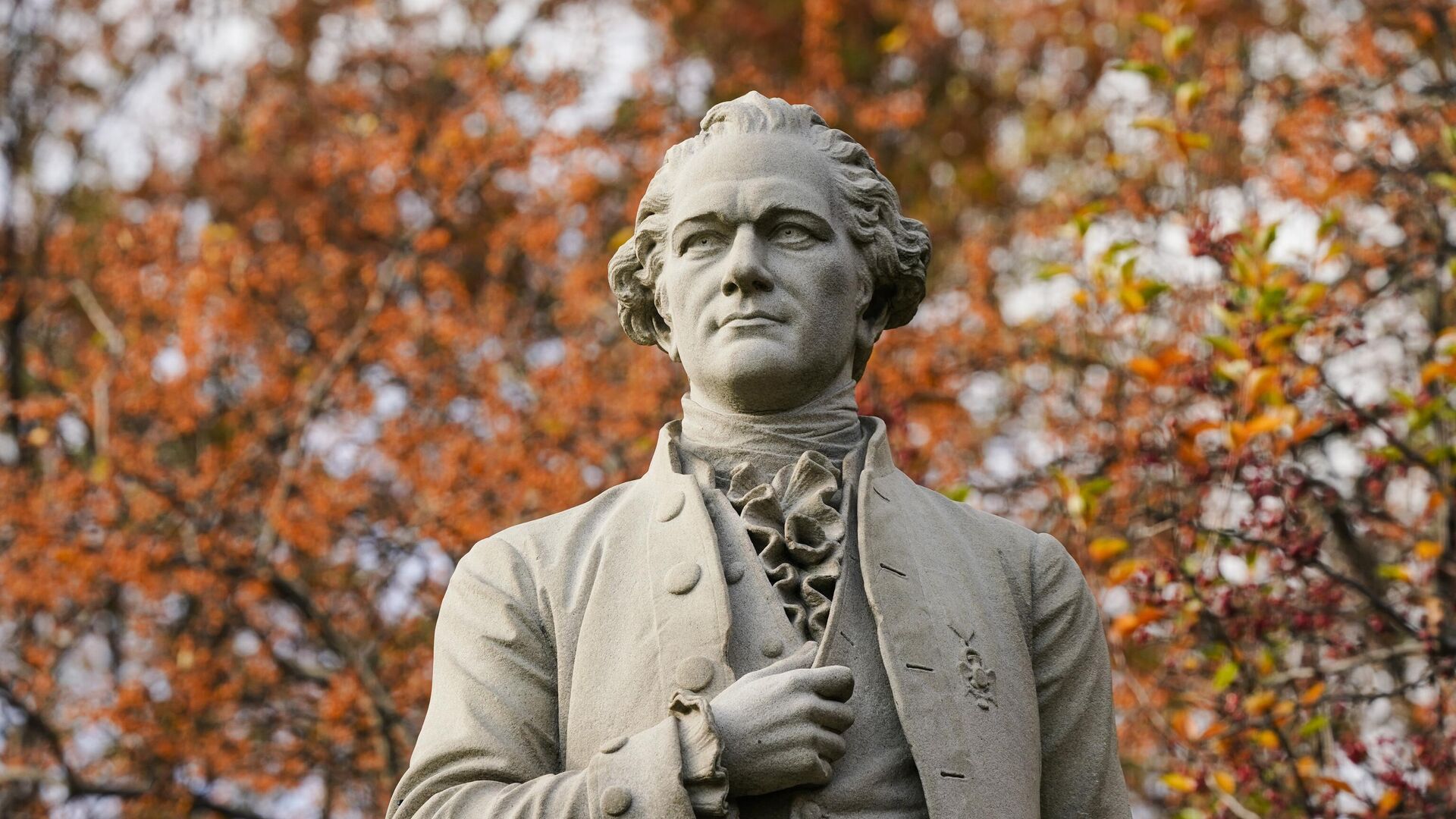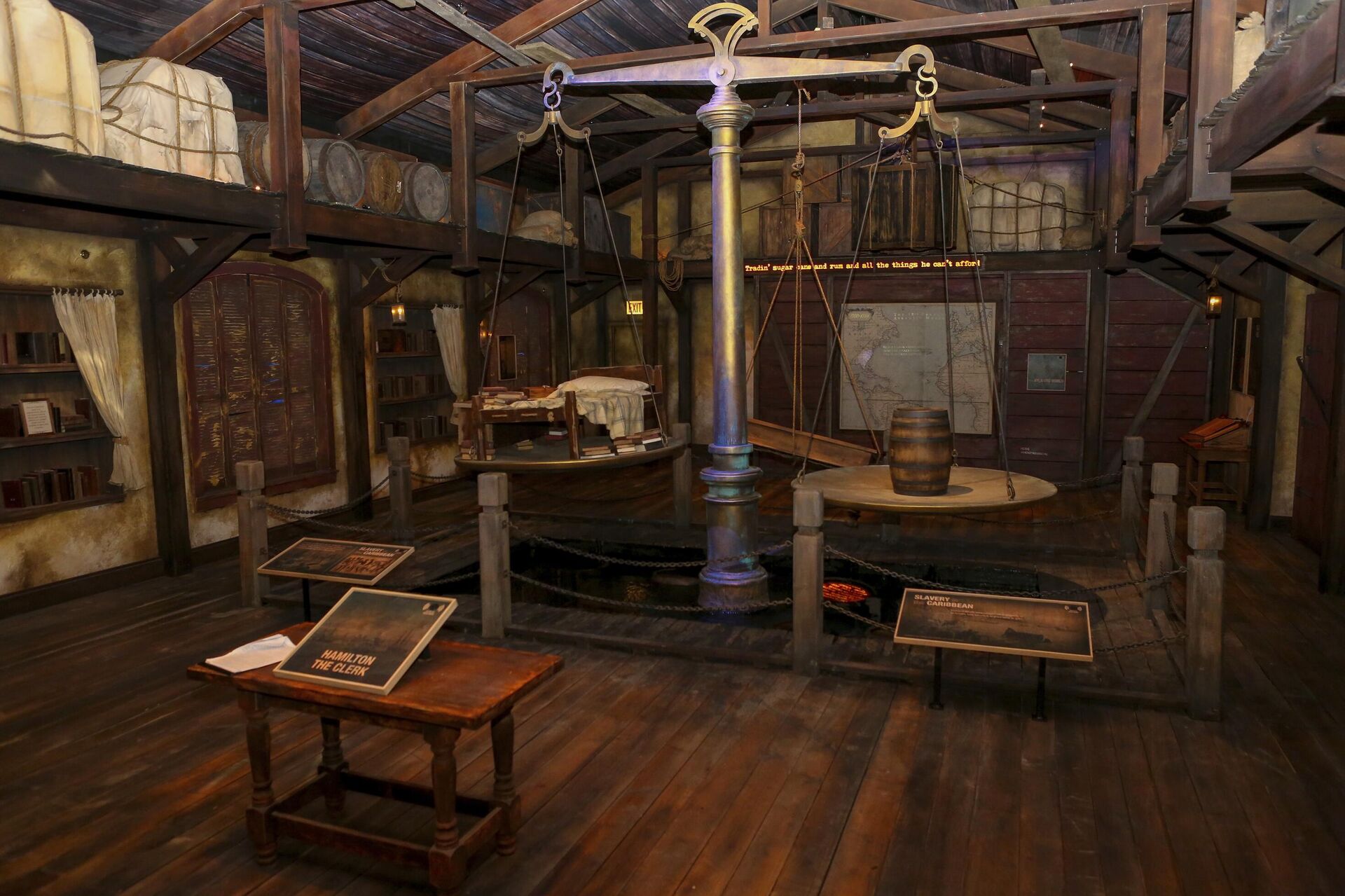https://sputnikglobe.com/20230112/alexander-hamilton-who-was-the-unlikely-broadway-hero-and-what-is-his-legacy-1106225586.html
Alexander Hamilton: Who Was the Unlikely Broadway Hero and What is His legacy?
Alexander Hamilton: Who Was the Unlikely Broadway Hero and What is His legacy?
Sputnik International
Alexander Hamilton gained fame 250 years after his birth as the subject of an unlikely hip-hop musical. But who was the young Revolutionary War soldier who died in a politically-charged pistol duel, and what is his legacy today?
2023-01-12T03:13+0000
2023-01-12T03:13+0000
2023-01-12T05:08+0000
hamilton
us
sputnik explains
donald trump
hillary clinton
2016 us presidential election
electors
electoral college
us electoral college
https://cdn1.img.sputnikglobe.com/img/07e7/01/0b/1106226662_0:0:3072:1728_1920x0_80_0_0_77e18c5750f4bae0a572334278e5311e.jpg
Who was Alexander Hamilton? Thanks to the musical of his name, the popular image of the one-time US treasury secretary has somewhat improbably become that of a rapper in knee britches and frock-coat.On the anniversary of his birth, we must separate the colorful fiction from the often boring reality to find the true history of this important figure.Hamilton was born on January 11, 1755 (or 1757 according to other sources) on the Caribbean island of Nevis to Scotsman James Hamilton and Rachel Faucette, who fled her marriage in the Danish colony of St. Croix. He and his brother James Jr. were excluded from the local Church of England school as they were born out of legal wedlock.After his father left and mother died of yellow fever, he was taken in by a local merchant for whom he worked for several years before catching a ship to Boston and then New York in 1772. There, he enrolled in King's College and became renowned for his skill in polemical writing, including political tracts for the cause of independence from Britain.At the outbreak of the American War of Independence in 1875, a gaggle of Kings College students formed their own militia dubbed 'The Corsicans' and later 'The Heart of Oak.' The next year, Hamilton - barely 20 years old - was able to pull strings among his friends in the New York legislature to be commissioned as an officer in the unit, now an artillery battery after capturing several cannon.He served as an aide de camp to general George Washington, but the lust for glory led him to make repeated requests to be transferred to a line regiment, until he finally used a minor disagreement as pretext for his resignation from Washington's staff. Eventually in 1781, Washington gave Hamilton his own command after the young officer threatened to resign his commission, and he ended the war with the rank of general.Hamilton's military and political career was further helped by his marriage in 1780 to Elizabeth, the daughter of general and congressman Philip Schuyler.Democracy? No Thanks!As a member of the Federalist party that dominated US politics until 1801, Hamilton favoured a strong central government that could pass federal legislation that superseded the statutes of the individual states — something which has always eluded US politics except in the murky realms of foreign policy and defence.He was also opposed to directly electing a president by simple majority. The 68th essay published in The Federalist series of political screeds in 1788 — widely attributed to Hamilton — argued in favor of the still-controversial Electoral College system of appointed electors from each state choosing the nation's leader. He had, after all, written the first draft of the US Constitution.He wrote that "men most capable of analyzing the qualities adapted to the station" of the presidency must mediate between the voters and the executive to prevent the election of anyone "not in an eminent degree endowed with the requisite qualifications."That essay would later resurface with noel ramifications the 21st century. Hamilton's name hit the headlines again in 2016 following Donald Trump's victory over Democratic candidate Hillary Clinton in that year's election. A rump of state-appointed members of the Electoral College, calling themselves the 'Hamilton Electors', attempted to usurp the result and cast their votes for Clinton, rather than Trump as mandated. The 'faithless electors' eventually backed down.Treasury TroublesHamilton was appointed the first US secretary of the Treasury by then-President George Washington in 1789, a position he held for six years.In order to raise money to pay off debts of $54 million run up by the federal government during the war, Hamilton persuaded Congress to levy a tax on whiskey. The move was immediately unpopular, including among war veterans who fought against 'taxation without representation', and with farmers in the western states who made extra income from distilling their own liquor. Attempts to collect tax sparked a series of riots dubbed the 'Whisky rebellion' that raged from 1791 to 1794, forcing president Washington to call out the troops. Hamilton's 'Second Report on Public Credit' in December 1790 called for the creation of the national central bank modeled on the Bank of England. That was enacted in 1791 despite objections by Congressman James Madison, later US president, on that basis that it was unconstitutional. The First Bank of the United States founded as a result was the forerunner of the present-day Federal Reserve.Row-By ShootingPerhaps the most interesting part of Hamilton's life story is his death in a duel with former Vice President Aaron Burr.Burr was Thomas Jefferson's running-mate on the Democratic-Republican Party ticket in the close-run 1800 election, but made a secret deal with Hamilton's Federalist Party to use their votes in the same Electoral College system — which Hamilton had co-authored — to make him president with Jefferson as his VP.A refusal by just two Federalists to play along led to months of deadlock in the House of Representatives, leading to a run-off 'contingent' election between the two party-mates. Jefferson won and Burr was made vice president, but the two were at odds from then on and Jefferson replaced Burr with George Clinton on his successful 1804 ticket.Burr, undaunted, ran for governor of New York in 1804. The Albany Register newspaper promptly published a letter, originally sent by doctor, lawyer and Democratic-Republican politician Charles D. Cooper to Hamilton's father-in-law and former senator Philip Schuyler.In his letter, Cooper described Burr as a "dangerous man, and one who ought not be trusted with the reins of government," and claimed he could describe in detail "a still more despicable opinion which General Hamilton has expressed of Mr. Burr" at a dinner party they had recently attended together.In a series of private letters, Burr repeatedly demanded that Hamilton deny he had voiced the "despicable" slur. In his replies, Hamilton protested that Cooper had mentioned no specific quote by him and that he could not be held responsible for Cooper's 'interpretation' of his words. He concluded that he would "abide the consequences" if Burr was not satisfied — an apparent invitation to be challenged to a duel.The men agreed to meet on July 12, 1804, in woodland across the Hudson river from New York in Weehawken, New Jersey. Forebodingly, that was was the same spot where Hamilton's 19-year-old son Philip had been shot dead just over two years earlier in a duel with another Democratic-Republican figure, George Eacker.Eacker had reportedly said in an 1801 speech that Hamilton was not averse to overthrowing President Jefferson by force. Months later, Philip and his friend Stephen Price saw Eacker at a theatre performance and entered his private box to confront him. Eacker called the youths "damned rascals," and on that basis they both challenged him to settle the matter with pistols. Price's duel ended with both men unscathed after firing two shots each, and the elder Hamilton fatally advised his son to 'delope' or deliberately miss his shot. The two men stood motionless for a minute, but when Eacker finally raised his pistol, Philip followed suit and Eacker shot him in the hip, mortally wounding him. Historians sympathetic to Hamilton, along with the musical's authors, have claimed he told friends he also intended to delope in the duel, and that Burr fired first. That is contradicted by the account that Hamilton shot down a tree branch over Burr's head before being hit in return and collapsing. Some have even ventured that Hamilton's death was a form of honorable suicide at another man's hand.
https://sputnikglobe.com/20161214/judge-colorado-electors-must-vote-hillary-1048570418.html
https://sputnikglobe.com/20171025/trump-gets-dissed-by-founding-farmers-1058541321.html
https://sputnikglobe.com/20201016/happy-warrior-vs-confused-great-uncle-what-has-the-trump-biden-town-halls-duel-exposed-1080786983.html
Sputnik International
feedback@sputniknews.com
+74956456601
MIA „Rossiya Segodnya“
2023
James Tweedie
https://cdn1.img.sputnikglobe.com/img/07e4/08/1c/1080307270_0:3:397:400_100x100_80_0_0_7777393b9b18802f2e3c5eaa9cbcc612.png
James Tweedie
https://cdn1.img.sputnikglobe.com/img/07e4/08/1c/1080307270_0:3:397:400_100x100_80_0_0_7777393b9b18802f2e3c5eaa9cbcc612.png
News
en_EN
Sputnik International
feedback@sputniknews.com
+74956456601
MIA „Rossiya Segodnya“
Sputnik International
feedback@sputniknews.com
+74956456601
MIA „Rossiya Segodnya“
James Tweedie
https://cdn1.img.sputnikglobe.com/img/07e4/08/1c/1080307270_0:3:397:400_100x100_80_0_0_7777393b9b18802f2e3c5eaa9cbcc612.png
alexander hamilton, us, new york, musical, electoral college
alexander hamilton, us, new york, musical, electoral college
Alexander Hamilton: Who Was the Unlikely Broadway Hero and What is His legacy?
03:13 GMT 12.01.2023 (Updated: 05:08 GMT 12.01.2023) One of the US founding fathers has recently found himself the subject of renewed interest - 250 years after his birth. But how exactly did this historical icon transition from young Revolutionary War soldier to become the head of the American financial system? And what effects are his ideas still having on the country today?
Who was Alexander Hamilton? Thanks to the musical of his name, the popular image of the one-time US treasury secretary has somewhat improbably become that of a rapper in knee britches and frock-coat.
On the anniversary of his birth, we must separate the colorful fiction from the often boring reality to find the true history of this important figure.
Hamilton was born on January 11, 1755 (or 1757 according to other sources) on the Caribbean island of Nevis to Scotsman James Hamilton and Rachel Faucette, who fled her marriage in the Danish colony of St. Croix. He and his brother James Jr. were excluded from the local Church of England school as they were born out of legal wedlock.
After his father left and mother died of yellow fever, he was taken in by a local merchant for whom he worked for several years before catching a ship to Boston and then New York in 1772. There, he enrolled in King's College and became renowned for his skill in polemical writing, including political tracts for the cause of independence from Britain.
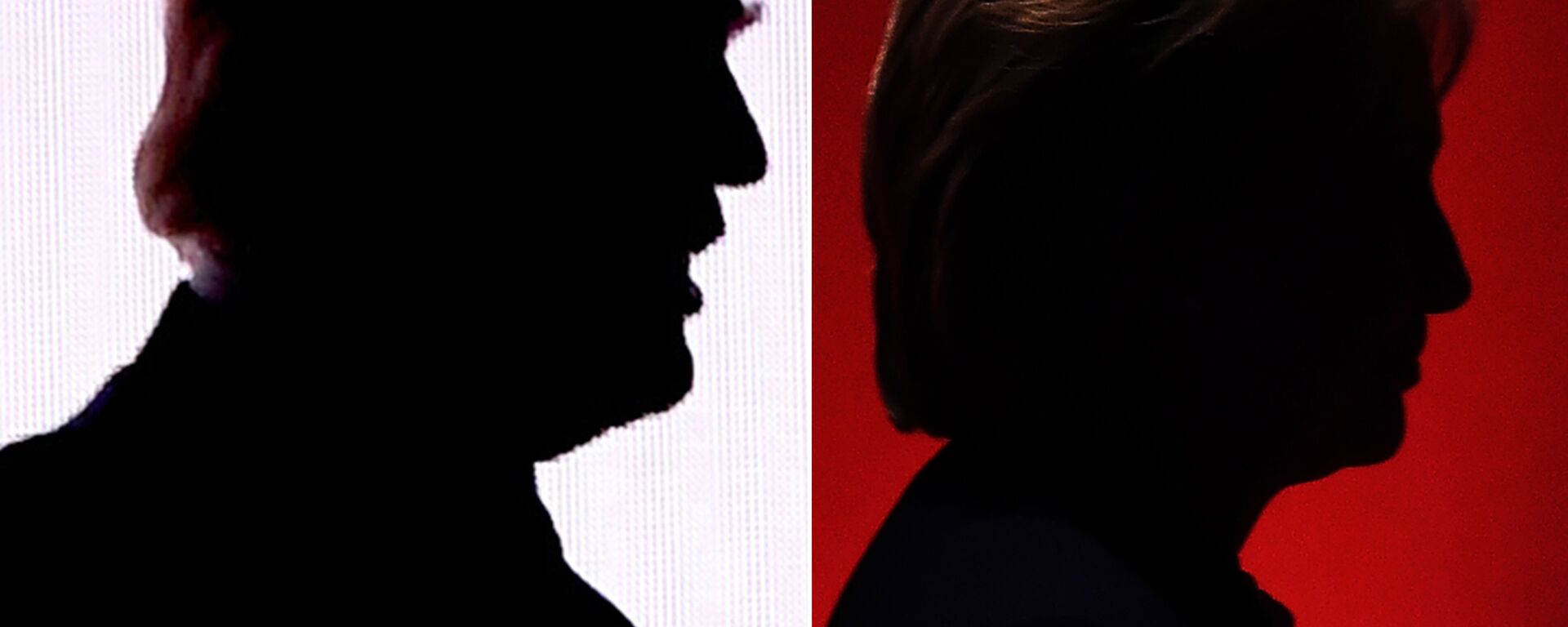
14 December 2016, 21:00 GMT
At the outbreak of the American War of Independence in 1875, a gaggle of Kings College students formed their own militia dubbed 'The Corsicans' and later 'The Heart of Oak.' The next year, Hamilton - barely 20 years old - was able to pull strings among his friends in the New York legislature to be commissioned as an officer in the unit, now an artillery battery after capturing several cannon.
He served as an aide de camp to general George Washington, but the lust for glory led him to make repeated requests to be transferred to a line regiment, until he finally used a minor disagreement as pretext for his resignation from Washington's staff. Eventually in 1781, Washington gave Hamilton his own command after the young officer threatened to resign his commission, and he ended the war with the rank of general.
Hamilton's military and political career was further helped by his marriage in 1780 to Elizabeth, the daughter of general and congressman Philip Schuyler.
As a member of the Federalist party that dominated US politics until 1801, Hamilton favoured a strong central government that could pass federal legislation that superseded the statutes of the individual states — something which has always eluded US politics except in the murky realms of foreign policy and defence.
He was also opposed to directly electing a president by simple majority. The 68th essay published in The Federalist series of political screeds in 1788 — widely attributed to Hamilton — argued in favor of the still-controversial Electoral College system of appointed electors from each state choosing the nation's leader. He had, after all, written the first draft of the US Constitution.
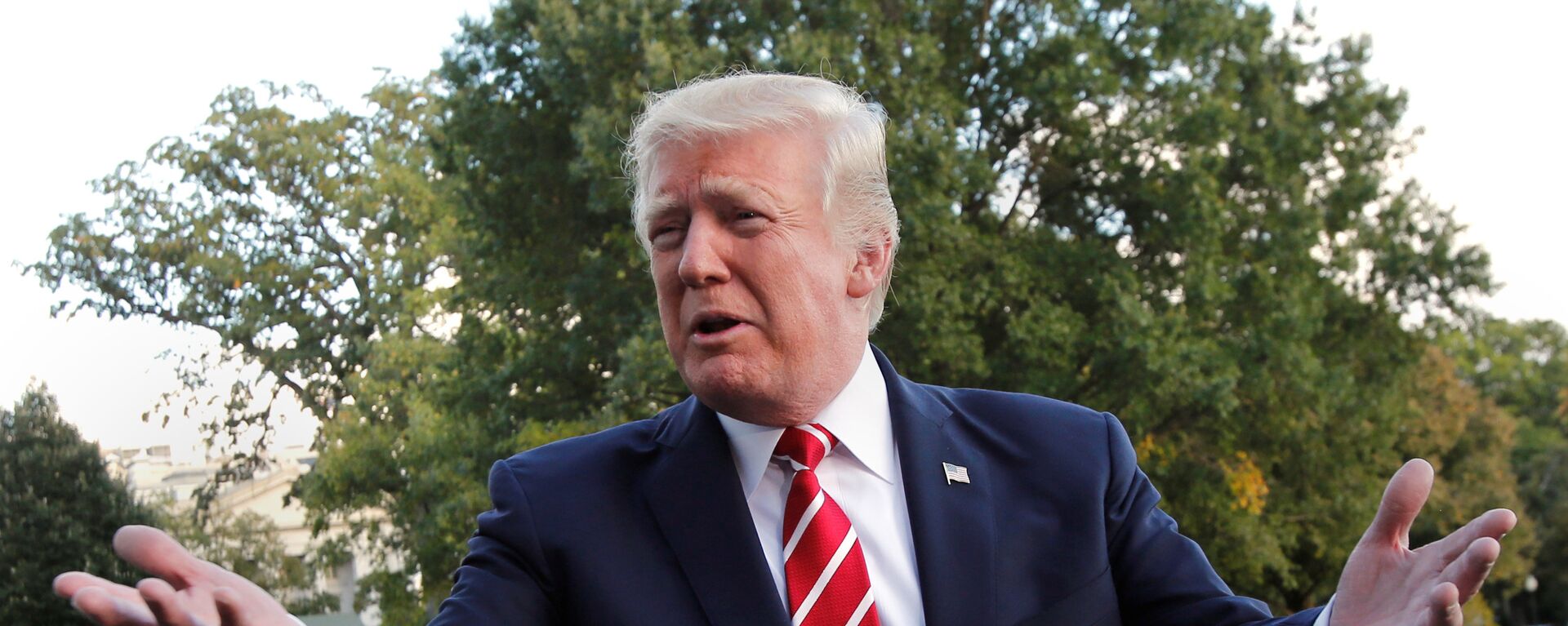
25 October 2017, 19:38 GMT
He wrote that "men most capable of analyzing the qualities adapted to the station" of the presidency must mediate between the voters and the executive to prevent the election of anyone "not in an eminent degree endowed with the requisite qualifications."
That essay would later resurface with noel ramifications the 21st century. Hamilton's name hit the headlines again in 2016 following Donald Trump's victory over Democratic candidate Hillary Clinton in that year's election. A rump of state-appointed members of the Electoral College, calling themselves the 'Hamilton Electors', attempted to usurp the result and cast their votes for Clinton, rather than Trump as mandated. The 'faithless electors' eventually backed down.
Hamilton was appointed the first US secretary of the Treasury by then-President George Washington in 1789, a position he held for six years.
In order to raise money to pay off debts of $54 million run up by the federal government during the war, Hamilton persuaded Congress to levy a tax on whiskey. The move was immediately unpopular, including among war veterans who fought against 'taxation without representation', and with farmers in the western states who made extra income from distilling their own liquor. Attempts to collect tax sparked a series of riots dubbed the 'Whisky rebellion' that raged from 1791 to 1794, forcing president Washington to call out the troops.
Hamilton's 'Second Report on Public Credit' in December 1790 called for the creation of the national central bank modeled on the Bank of England. That was enacted in 1791 despite objections by Congressman James Madison, later US president, on that basis that it was unconstitutional. The First Bank of the United States founded as a result was the forerunner of the present-day Federal Reserve.
Perhaps the most interesting part of Hamilton's life story is his death in a duel with former Vice President Aaron Burr.
Burr was Thomas Jefferson's running-mate on the Democratic-Republican Party ticket in the close-run 1800 election, but made a secret deal with Hamilton's Federalist Party to use their votes in the same Electoral College system — which Hamilton had co-authored — to make him president with Jefferson as his VP.
A refusal by just two Federalists to play along led to months of deadlock in the House of Representatives, leading to a run-off 'contingent' election between the two party-mates. Jefferson won and Burr was made vice president, but the two were at odds from then on and Jefferson replaced Burr with George Clinton on his successful 1804 ticket.
Burr, undaunted, ran for governor of New York in 1804. The Albany Register newspaper promptly published a letter, originally sent by doctor, lawyer and Democratic-Republican politician Charles D. Cooper to Hamilton's father-in-law and former senator Philip Schuyler.
In his letter, Cooper described Burr as a "dangerous man, and one who ought not be trusted with the reins of government," and claimed he could describe in detail "a still more despicable opinion which General Hamilton has expressed of Mr. Burr" at a dinner party they had recently attended together.
In a series of private letters, Burr repeatedly demanded that Hamilton deny he had voiced the "despicable" slur. In his replies, Hamilton protested that Cooper had mentioned no specific quote by him and that he could not be held responsible for Cooper's 'interpretation' of his words. He concluded that he would "abide the consequences" if Burr was not satisfied — an apparent invitation to be challenged to a duel.
The men agreed to meet on July 12, 1804, in woodland across the Hudson river from New York in Weehawken, New Jersey. Forebodingly, that was was the same spot where Hamilton's 19-year-old son Philip had been shot dead just over two years earlier in a duel with another Democratic-Republican figure, George Eacker.
Eacker had reportedly said in an 1801 speech that Hamilton was not averse to overthrowing President Jefferson by force. Months later, Philip and his friend Stephen Price saw Eacker at a theatre performance and entered his private box to confront him. Eacker called the youths "damned rascals," and on that basis they both challenged him to settle the matter with pistols.
Price's duel ended with both men unscathed after firing two shots each, and the elder Hamilton fatally advised his son to 'delope' or deliberately miss his shot. The two men stood motionless for a minute, but when Eacker finally raised his pistol, Philip followed suit and Eacker shot him in the hip, mortally wounding him.
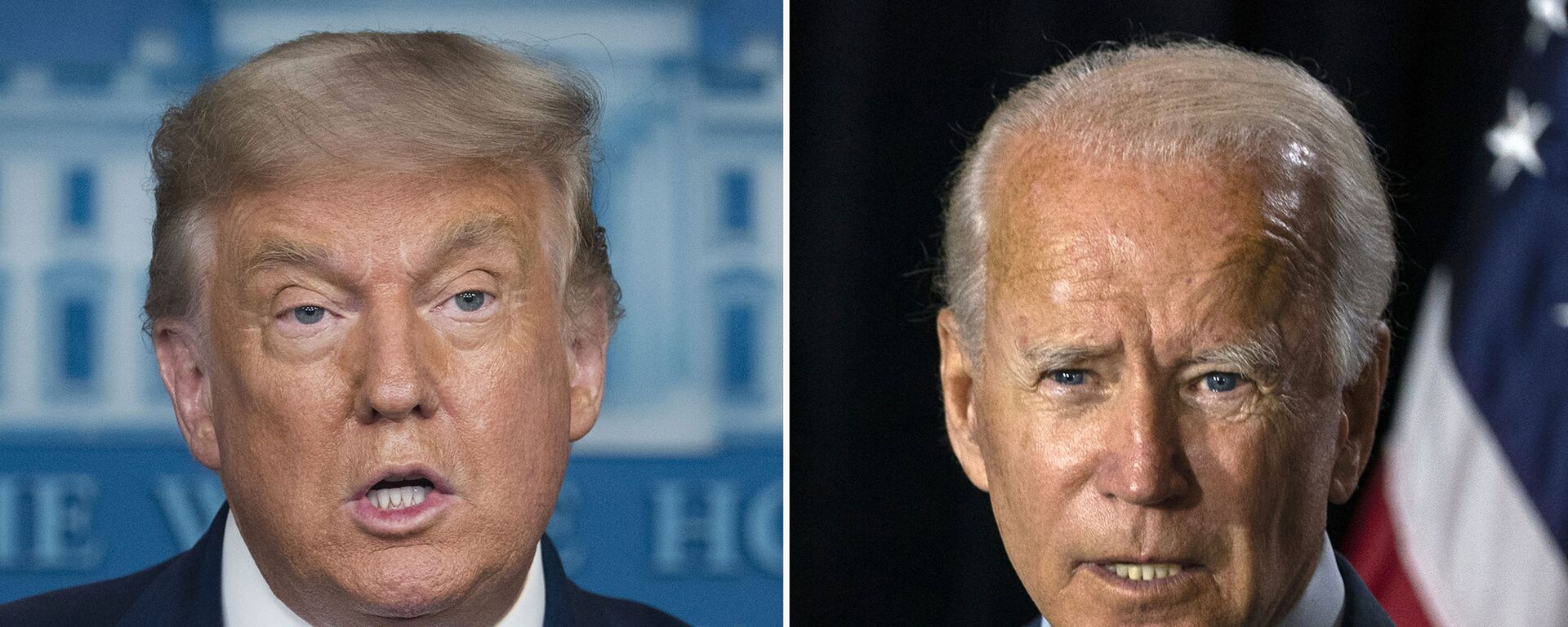
16 October 2020, 09:13 GMT
Historians sympathetic to Hamilton, along with the musical's authors, have claimed he told friends he also intended to delope in the duel, and that Burr fired first. That is contradicted by the account that Hamilton shot down a tree branch over Burr's head before being hit in return and collapsing. Some have even ventured that Hamilton's death was a form of honorable suicide at another man's hand.
